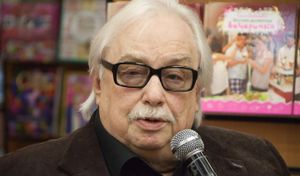On February 6, 2025, Dmitry Bakanov was appointed as the new head of Roscosmos, following the unexpected removal of Yuri Borisov from the role. The announcement came from the Kremlin, where the change was formalized through presidential decrees signed by Vladimir Putin. This sudden shift has generated significant interest and surprise among both industry stakeholders and employees within the state corporation responsible for Russia's space initiatives.
Yuri Borisov's tenure as the director of Roscosmos began in July 2022, and he succeeded Dmitry Rogozin. Borisov, who was previously the Deputy Prime Minister responsible for overseeing various sectors, including defense, stepped down unexpectedly, leaving many employees unaware of the leadership changes until the morning of February 6. According to reports, "All happened overnight," noted one anonymous source, reflecting on the reaction within the corporation.
Dmitry Bakanov is not new to the challenges of managing governmental institutions. Born on October 7, 1985, he hails from Lenin's region, known today as Baykonur, the same area adjacent to one of the world’s most famous space launch sites. Prior to his appointment at Roscosmos, Bakanov served as the Deputy Minister of Transport and directed the Digital Transformation Department, where he oversaw technological advancements across various transport sectors. His career includes significant experience with the Gonets Satellite System, where he was the head between 2011 and 2019. This position enabled him to become acquainted with communication systems integral to Roscosmos's operations.
Bakanov's appointment raises questions surrounding the direction of Roscosmos, particularly against the backdrop of uncertainties linked to the still-developing National Space Center project located on the grounds of the Khrunichev State Research and Production Space Center. An insider noted to RBC, "The construction costs are rising, which is changing the area allocations and raises questions about future operational expenses." Such financial adjustments signal the potential need for decisive leadership and innovative problem-solving capabilities.
After confirming the changes, key figures from the space industry reacted positively. Dmitry Rogozin, who served as the head of Roscosmos before Borisov, extended his congratulations to Bakanov via his personal Telegram account. He stated, "I sincerely congratulate Dmitry Bakanov on his appointment to the position of general director of Roscosmos! I know him as a capable specialist and decent person." Rogozin’s endorsement highlights Bakanov's perceived qualifications for the role as Roscosmos faces both existing and future challenges.
The unexpected leadership transition at Roscosmos exemplifies the broader fluctuations seen within Russian governmental sectors, where strategic updates often hinge on current project dynamics and economic assessments. Observers are left to ponder the future of the agency, particularly with regard to its ambitious space programs and the necessary innovations to maintain Russia's competitive edge within the global space arena. With rising costs and demands for technological advancements, the success of Bakanov's leadership will likely depend on his ability to rally resources and reinvigorate the commitments to the country’s space exploration goals.
Looking forward, the developments under Dmitry Bakanov's stewardship could shape the impact of Roscosmos on international space exploration and its collaborations with private entities, particularly as Borisov hinted at initiatives geared toward establishing multi-satellite constellations working alongside private companies. The precise future remains unwritten, but with Bakanov at the helm, the Russian space sector enters another chapter marked by change and potential renewal.



